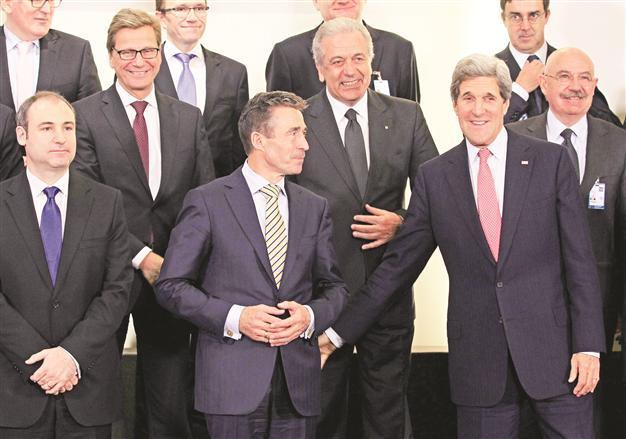NATO to take cyber-defense on agenda as threat grows
BRUSSELS - Agence France-Presse

NATO defense chiefs will meet this week in Brussels to review measures on how to protect members from cyber attacks amid growing threat posed by cyber-attacks, many blamed on China
Defense ministers from NATO’s 28 member states meet June 4. with cyber-defense top of the agenda, amid concerns about the threat posed by increasing cyber-attacks, many blamed on China.
“The challenge evolves all the time, probably (much faster) than any other type of threat we face at the moment,” said one senior NATO official who asked not to be named. “We have to make certain that NATO keeps pace with the threat,” the official added, looking ahead to the meeting June 4 and 5.
Newly appointed U.S. Secretary of Defense Chuck Hagel, who will be attending his first NATO meeting since taking office, has made the issue a priority.
In Singapore on June 1 he accused China of waging cyber-espionage against the U.S. after a U.S. report found evidence of a broad Chinese spying campaign against top U.S. defense contractors and government agencies. “The United States has expressed our concerns about the growing threat of cyber intrusions, some of which appear to be tied to the Chinese government and military,” he told an annual conference known as the Shangri-La Dialogue.
Beijing pressedHagel pressed Beijing to adhere to “international norms of responsible behavior in cyberspace,” while acknowledging that the establishment of a joint cyber security working group was a positive step in fostering dialogue. NATO head Anders Fogh Rasmussen made clear earlier this year that cyber-security is a key issue. The U.S.-led military alliance had been forced to upgrade its defenses after several attacks, among them by Anonymous, the hacker group, he said.
The senior NATO official said the alliance would from this year fix cyber-defense benchmarks for member countries. The exercise is aimed at protecting information networks, the electronic nervous system at the heart of modern warfare, the official said.
There is no intention to develop “offensive capacities,” the official said, adding that of NATO’s 28 members, 23 have already signed up to exchange information and help in the event of a cyber-attack. One diplomat noted that NATO had a special problem because, just as in conventional warfare, some member “states absolutely do not have the same capabilities as others.”
Some have minimal defenses while others, including the United States, commit major resources to the problem, but may not always be ready to share their expertise, the diplomat said. Defense ministers will also discuss Afghanistan.
